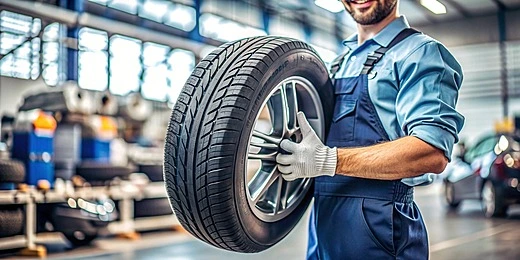The Impact of Social Media on Automotive Marketing

January 16, 2025
Social media has revolutionized the way automotive brands connect with consumers. It offers a unique platform to showcase vehicles, engage with potential customers, and build brand loyalty.
Here's a breakdown of its key impacts:
1. Enhanced Customer Engagement
- Direct Interaction: Social media allows brands to engage in real-time conversations with customers, addressing their questions, concerns, and feedback.
- Community Building: Brands can create online communities of enthusiasts, fostering a sense of belonging and loyalty.
- Personalized Experiences: Tailored content and targeted advertising can provide customers with a more personalized experience.
2. Increased Brand Awareness
- Viral Campaigns: Engaging content can go viral, reaching a wider audience and boosting brand visibility.
- Influencer Marketing: Collaborations with automotive influencers can tap into their dedicated followings.
- Visual Content: High-quality images and videos can showcase vehicles in a visually appealing way.
3. Improved Lead Generation
- Social Media Ads: Targeted advertising on platforms like Facebook, Instagram, and LinkedIn can generate leads and drive website traffic.
- Call-to-Actions: Clear and compelling calls to action, such as "Book a Test Drive" or "Get a Quote," can encourage potential customers to take the next step.
- Lead Capture: Social media forms can collect valuable customer information for future marketing efforts.
4. Customer Feedback and Insights
- Sentiment Analysis: Monitoring social media conversations can help brands understand customer sentiment and identify areas for improvement.
- Market Research: Surveys and polls can gather valuable insights into customer preferences and needs.
- Product Development: Customer feedback can inform product development and feature enhancements.
5. Crisis Management
- Rapid Response: Social media can be used to quickly address and resolve customer complaints or negative publicity.
- Transparency: Open and honest communication can help maintain trust with customers during challenging times.
Key Social Media Platforms for Automotive Marketing:
- Facebook: A versatile platform for reaching a wide audience and engaging in conversations.
- Instagram: Ideal for showcasing visually appealing content and building a brand's aesthetic.
- YouTube: A great platform for sharing product videos, tutorials, and behind-the-scenes content.
- Twitter: Effective for real-time updates, customer service, and participating in industry discussions.
- LinkedIn: A professional network for connecting with businesses and industry influencers.
By effectively leveraging these platforms, automotive brands can build strong customer relationships, drive sales, and stay ahead of the competition in today's digital age.
What’s the picture of social media marketing for Indian automobile brands?
We suggest you have a look into these 3 key Indian automotive brands that are leveraging social media in a big way:
- Tata Motors: Known for its innovative campaigns and engaging content on platforms like Instagram and Twitter.
- Mahindra & Mahindra: Uses social media to showcase its rugged and adventurous brand image.
- Maruti Suzuki: Leverages social media to connect with a wide range of consumers and promote its affordable car models.
Added to that, here are some excellent resources that delve into the intersection of social media and automotive marketing:
- "Social Media Marketing: An Integrated Approach" by Gary Armstrong and Philip Kotler: This classic textbook provides a comprehensive overview of social media marketing strategies, including case studies that can be applied to the automotive industry.
- "Digital Marketing" by Ryan Holiday: Holiday's book offers a practical guide to digital marketing, with insights that can be tailored to automotive brands.
Apart from these books, you can also have a look at some automotive-focused resources that can be of great help to you:
- "Content Marketing Institute's Annual Reports": These reports often feature case studies and trends related to content marketing, including automotive-specific examples.
- Automotive Industry Journals and Publications: Keep an eye out for articles and features in industry-specific publications like Automotive News, Automotive Marketing, and Motor Trend. They often discuss the latest trends and best practices in automotive social media marketing.
- Online Courses and Workshops: Platforms like Coursera, Udemy, and LinkedIn Learning offer courses on digital marketing and social media, which can include modules relevant to the automotive industry.
- Automotive Social Media Groups and Communities: Join online forums and groups dedicated to automotive marketing to connect with professionals sharing insights and experiences.
Tags:





